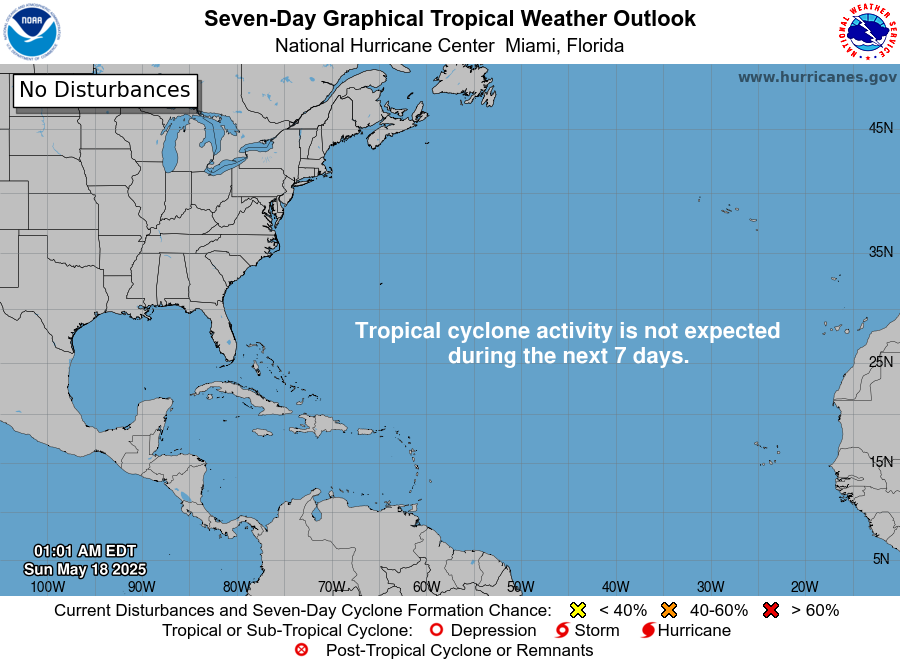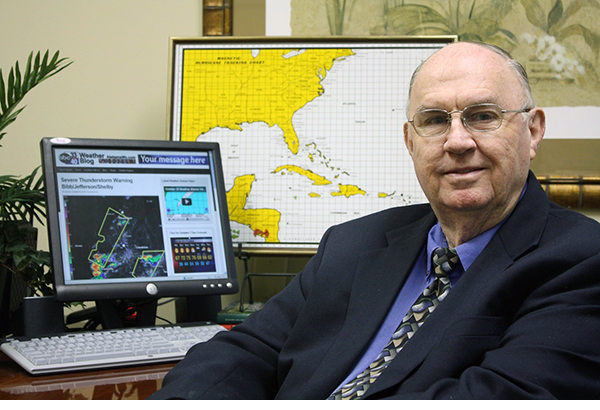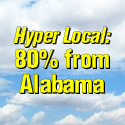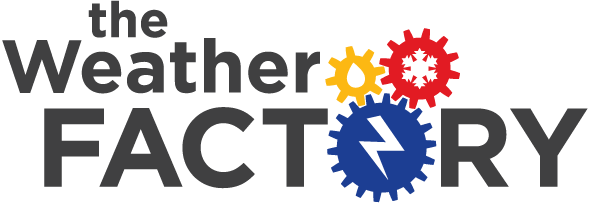April 3, 1974
As many people have said, anyone who experienced the events of April 3, 1974 will always remember them very clearly.
I was 12 years old. Our family lived in Huffman. I awakened that morning to curtains blowing in an open window. The first thing that I noticed was the breeze. It was downright windy. And warm. Not a good combination in the Spring in Alabama. Tornado weather.
We had just gone through it two nights before. It seemed like there was a tornado threat every few days back in the early 70s.
I got up and watched the Today show. A part of the weather feature was a national Skywarn map that showed the convective outlook (it had another name then, I just can’t remember what it was) put out by the National Severe Storms Forecast Center in Kansas City. And the one on that Wednesday, April 3, 1974 was huge! It covered a wide area from the Great Lakes down to the northern 2/3 of Alabama.
It was an absolutely beautiful day. Too hot for early April, however. Temperatures rebounded from morning lows in the 60s and were quickly headed toward 90F. You could feel the sweat running down your back. There was lots of sunshine, but also a widespread cumulus cloud field that was already growing in height by late morning.
The most unsettling things, however, was the wind. It was the strongest I had ever seen. Even stronger than the wind one year before on May 27, 1973, the day of the Brent and Centrpoint torndoes.
I was in the 6th grade. My teacher was a beautiful lady named Lynda Thornton. She took our class outside to work because of the nice weather. I was very worried and distracted. Everyone knew that I was interested in weather. She asked me what I thought the weather was going to do. I told her that I thought it was going to be a long, awful night. She poo-pooed my negative thoughts. After that day, everyone took me seriously as an accomplished prophet of doom.
The first storm came around lunch time. My father brought my lunch in a Thermos. That day, I had spaghetti. The storms blew through with impressive lightning and thunder, but not much else. I was coutning the minutes until 3 p.m. when I could finally get home and monitor the weather.
We got home from school just in time to turn on the radio and tv and find out that there was a tornado warning for Jefferson County. A tornado had been reported near Concord. There was an hour of dread with no information as the thunderstorm traversed the county. Not like today, where we can follow the storm’s every move on Doppler radar. We don’t realize how blessed we are with radar and skycams and wall to wall television coverage.
No real problems in our neck of the woods from round 2, but afterwards the sun came out briefly and it was still hot. And there was the wind.
I got my weather information from different sources at different times of the day. Joe Rumore on WVOK was unparalleled from 9 a.m. to nooon on WVOK. I mean, he had a teletype in his studio in his basement. You could hear it clattering away in the background, and you knew that it was on when the bell on the machine would start ringing away. Of course, I was at school during that time. WVOK did a good job all day long, but I knew they would sign off or go to low power at sunset. And it was AM radio, so the static from the lightning sometimes made the broadcasts difficult to hear.
Then in the afternoon and evening, Wayne Wallace and Ben Cleary did a great job reading the bulletins on WDJC. They also had a NOAA Weather Wire. WFMH in Cullman also did an excellent job, and they were FM like DJC.
I also had an old balck and white console television that my grandfather had given me since they had a color set. I had it in my room, but it would go off after 15 minutes and had to cool down before it would turn on again. WAPI was my channel.
During the late afternoon, the reports and warnings were dire. “A tornado, big and powerful, taking everything in its path,” was the text from a warning for Lawrence County, I think. THat gets your attention real quick. The words will always ring in my ears.
My grandparents lived in the tiny town of Kansas, Alabama, just northwest of Carbon Hill, in Walker County. There was a disturbing report about 6 p.m. or a tornado at tree top level near Carbon Hill. A call to them revealed that they were sitting in the dark, unaware of the weather. Their power had gone out hours before with the wind.
I was concerned. Just before 8 p.m., there was a tornado warning for Walker County. It said baseball sized hail was stripping the trees near Sumiton. Not good. A little too close to comfort. That’s next door…
Reports were that Jasper had been hit, tornado heading toward Cullman. The power was out at WFMH after the tornado, and they moved their broadcast to the transmitter, which had emergency power. They gave reports of the damage in Cullman. Later, they would provide some of the most dramatic information as they watched to the west as lightning spewed from the massive thunderstorm that would produce the devastating tornado at Guin.
Someone said that the stroms in Mississippi were even stronger. How could they be? We were already hearing of a growing death toll. The big storm was headed toward Marion County, Alabama. My Aunt and Uncle and cousins lived just southeast of Winfield. I was very worried.
There were chaotic and disturbing reports from all over North Alabama. Thunderstorms with five hook echoes. How can that be? Storms moving at 110 mph? Bad tornadoes moved at 60 mph I had always heard. What could a tornado moving at 110 mph mean.
In Centreville, the radar operators stared at their screen in disbelief. The storm in Marion County was moving at over 100 mph. The top of the storm was so high that it was thrust into the maximum winds of the jetstream. In fact, the tops were at something like 85,000 feet, above the ceiling for storms.
Around 11 p.m., Wendell Harris on Channel 13 read the frightening bulleting that the National Weather Service in Huntsville had been abandoned as a tornado bore down on the station. It seemed like the end of the world to me. Huntsville was under siege.
Still, the storms had never made it to the Birmingham area. It was a nerve wracking waiting game. The line had stalled. But then, there was a supercell storm in Blount County. I could see the lightning to the north. I didn’t worry about that storm, since I knew it would be moving away from us. But other storms could form. Then my father came in and made me turn off the radio and go to sleep. I was kind of glad to do that. There was a long day of school ahead the next day, if we lived through the night.
I awakened to the sound of more warnings on the radio about 5:30 a.m. Another warning for Jefferson County. We ended up sitting in the hall waiting for the storm to pass. The reports were disturbing. 86 people dead overnight. It was the worst disaster we could imagine.
A few days later, it was Easter. We went to Guin, where my uncle was a National Guard officer on duty. The devatation was incredible. I still remember the sight of a school bus on its side, wrapped around a telephone pole.
I have two long posts that I will share later today. One is a selection of the warnings from that day with some notes. The other are all of the collected stories from readers about their experiences. James also posted his memories last evening. I think you will enjoy reading all of this. Please chime in with your memory by responding to the posts.
Category: Uncategorized

















